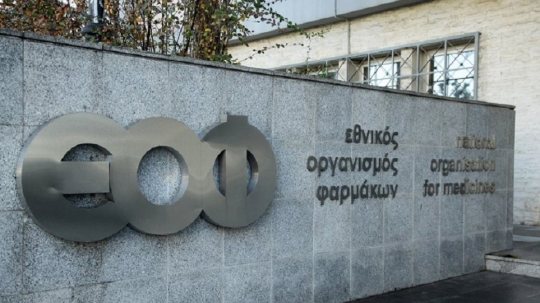#briviact
Explore tagged Tumblr posts
Text
Epilepsy Drugs Market Analysis: Growth Drivers and Emerging Therapies
The global epilepsy drugs market size is expected to reach USD 15.35 billion by 2030, registering a CAGR of 5.1% from 2023 to 2030, according to a new report by Grand View Research, Inc. The rising government funding for the development of new and effective drugs for the treatment of seizures is a high impact rendering driver for the epilepsy drugs market growth. The American Epilepsy Society (AES) in alliance with other organizations, such as American Academy of Neurology, the Epilepsy Foundation, and the Grass Foundation, provide funding for R&D activities and offer treatment line awareness trainingto the physicians through different programs.
Furthermore, various awareness programs conducted by organizations, such as the Epilepsy Foundation, the American Epilepsy Society, Epilepsy Association of Central Florida, CURE Epilepsy, and the Anita Kaufmann Foundation, further accelerate the diagnosis and treatment rates. This is expected to propel the market growth over the forecast period.
Epilepsy Drugs Market Report Highlights
Second generation anti-epileptics are expected to be the second-fastest-growing segment. This segment includes Lamotrigine (Lamictal), Levetiracetam (Keppra), Brivaracetam (Briviact), and Perampanel (Fycompa).
The third generation anti-epileptics segment accounted for the largest revenue share of around 39.3% in 2022. The major factors responsible for the growth of this segment include the launch of high efficacy drugs with improved mechanism of action and fewer side effects, and the awaited launch of new pipeline drugs.
North America dominated the market with the largest revenue share of around 45% in 2022. The high prevalence of epilepsy in the region, with a significant number of people affected by the condition, is a major driving factor for the epilepsy drugs market.
Asia Pacific is estimated to expand at the highest CAGR of 6.3% over the forecast period. The presence of favorable government initiatives such as the Intersectoral Global Action Plan on Epilepsy, Global Campaign Against Epilepsy, and others, as well as the launch of new-generation anti-epileptic drugs are the drivers expected to propel the growth of this market in the region.
Epilepsy Drugs Market Segmentation
Grand View Research has segmented the global epilepsy drugs market on the basis of product, and region:
Epilepsy Drugs Product Outlook (Revenue, USD Million, 2018 - 2030)
First Generation Anti-epileptics
Second Generation Anti-epileptics
Third Generation Anti-epileptics
Epilepsy Drugs Regional Outlook (Revenue, USD Million, 2018 - 2030)
North America
US
Canada
Europe
UK
Germany
France
Italy
Spain
Sweden
Norway
Denmark
Asia Pacific
China
Japan
India
Australia
Thailand
South Korea
Latin America
Brazil
Mexico
Argentina
Middle East and Africa
Saudi Arabia
South Africa
UAE
Kuwait
Order a free sample PDF of the Epilepsy Drugs Market Intelligence Study, published by Grand View Research.
0 notes
Text
Cannabidiol (CBD): Safety and Side Effects
?
There are many unknowns about CBD. But the current guidelines are clear that certain people should avoid taking CBD products. CBD is not recommended if you:
Are pregnant or breastfeeding: The effect of CBD on pregnancy is not known at this time. The CDC recommends that pregnant women not take any kind of CBD product. CBD is also not recommended if you are breastfeeding. It is unknown whether it can be passed through breast milk. At least one animal study shows high doses of CBD can harm an unborn baby.
Have liver disease: Studies show healthy people could get liver damage if they take high doses of the FDA-approved CBD drug, Epidiolex. People who already have liver problems may need to take a lower dose.
Have Parkinson’s disease: Data suggests higher doses of CBD may make tremors and muscle movement worse for some people who have Parkinson’s disease.
Are a child: The anti-seizure prescription CBD drug (Epidiolex) in a 25-milligram dose is approved for children who are at least 1 year old who have certain health conditions. But it is unclear whether CBD products are safe for children generally. It’s a good idea to keep CBD products in childproof containers.
Are older than 55: Older adults could be at greater risk for some of the side effects of CBD since it may affect thought and motor skills.
What Side Effects Are Possible With CBD?
Although CBD is sold in many products, including edibles, beverages, beauty products, and more, it’s not without risk. You should be aware of possible side effects:
Crankiness and changes in mood
Sleepiness or drowsiness
Diarrhea
Decreased appetite
Liver damage
Changes in how other drugs you take work
Damage to male fertility
Dry mouth
Lightheadedness
What Do We Know About CBD’s Long-Term Effects?
Scientists are clear that there needs to be more research to find out the long-term effects of CBD. It’s hard to know the clinical benefits because so many products that are on the market haven’t been tested. It’s hard to test long-term effects on impure substances.
Why Is It Important to Tell Your Doctor You’re Taking CBD?
It is always important to let your doctor know if you’re taking CBD – or any supplement. CBD can affect how your body breaks down medications.
Because CBD might slow how your body breaks down these drugs, that could mean higher levels of the drug in your body, and even cause more side effects. CBD may also change how other medicines work because they are broken down by the liver.
CBD can interact with:
Many anti-seizure drugs, including brivaracetam (Briviact), carbamazepine (Tegretol), clobazam (Onfi), eslicarbazepine (Aptiom), and topiramate (Topamax)
Some antidepressants, like citalopram (Celexa)
Some cancer-fighting medicines, including everolimus (Afinitor)
The blood thinner warfarin (Coumadin, Jantoven)
Caffeine
It’s important to also let your doctor know if you’re taking other supplements along with CBD since those can also cause different side effects. And the drugs could make side effects that CBD can cause even worse.
The bottom line is to talk with your health care provider about the CBD products you are taking and be completely honest about your dosing.
When Do You Call for Help if CBD Causes a Serious Medical Reaction?
Some side effects might go away as your body gets used to CBD. But others may need medical attention. Get help if you have:
Loss of strength
A rash
Weight loss
Changes in your walking or balance
Clumsiness or unsteadiness
Drooling
Trouble sleeping
A 2021 CDC health advisory warned that some CBD products on the market may contain delta-8 tetrahydrocannabinol (THC), an ingredient found in marijuana that produces a high. This type of THC hasn’t been widely studied, but it could cause a severe reaction. That may include a hard time breathing, slurred speech, low blood pressure, uncoordinated movement, trouble moving, and even a coma. In those cases, call 911 or have someone call for you.
Show Sources
Next
Avoid Mixing These Drugs With CBD
Avoid Mixing These Drugs With CBD
Cannabidiol (CBD) can change the way your body breaks down medicines you take. It can intensify side effects of others. Find out what NOT to take with CBD.
Explore More
CBD for Cats
Article
CBD for Cats
CBD could help your cat with pain and anxiety. But confusing laws may make it hard for you and your vet to make decisions. Find out how to help your pet.
How Can CBD Assist With Pain Relief?
Article
How Can CBD Assist With Pain Relief?
Considering cannabidiol (CBD) massage for pain relief? Here’s what you need to know about the research, benefits, and risks.
Can CBD Help Your Hair Grow?
Article
Can CBD Help Your Hair Grow?
CBD products make lots of claims, even for your hair. Learn whether using hair products with CBD can make your hair healthier.
What to Consider When Getting a Drug Test
Article
What to Consider When Getting a Drug Test
Cannabidiol (CBD) isn’t intoxicating. But you could still test positive for marijuana if you use certain CBD products. Get the facts.
0 notes
Text
Mechanism of Action of Brivaracetam API
Brivaracetam, also known as Briviact, is a third-generation anticonvulsant medication used to treat partial-onset seizures in adults and adolescents. While its precise mechanism of action remains elusive, researchers have identified several potential pathways through which brivaracetam exerts its anticonvulsant effects.
Synaptic Vesicle Protein 2A (SV2A): A Prime Suspect
One of the most well-studied targets of brivaracetam is synaptic vesicle protein 2A (SV2A). SV2A is a glycoprotein found on the surface of synaptic vesicles, which are small structures responsible for storing and releasing neurotransmitters within the brain. Brivaracetam binds to SV2A with high affinity, potentially affecting the release of various neurotransmitters, particularly glutamate, a major excitatory neurotransmitter involved in seizure activity.
Voltage-gated Sodium Channels: A Supporting Act?
Recent research suggests that brivaracetam may also influence voltage-gated sodium channels (VGSCs). VGSCs are responsible for the generation and propagation of action potentials, which are electrical signals that allow neurons to communicate with each other. By subtly modulating VGSCs, brivaracetam may contribute to its anticonvulsant effects.
Other Potential Mechanisms
Other, less explored mechanisms potentially contributing to brivaracetam's anticonvulsant activity include:
Neurotransmitter reuptake inhibition: brivaracetam may slightly inhibit the reuptake of certain neurotransmitters, such as GABA, which has inhibitory effects on the brain.
Calcium channel modulation: subtle modulation of calcium channels may be involved in brivaracetam's action, although the exact mechanism remains unclear.
Mitochondrial function: brivaracetam may have some protective effects on mitochondria, the energy-producing organelles within cells, which could contribute to its anticonvulsant effects.
The Puzzle Remains Incomplete
Despite significant research efforts, the precise mechanism of action of brivaracetam remains an ongoing puzzle. While the SV2A binding appears to play a key role, further investigation is needed to fully elucidate the complex interplay between brivaracetam and other potential targets.
Implications for Treatment:
Understanding the mechanism of action of brivaracetam is crucial for optimizing its clinical use. It allows researchers to:
Develop more effective and targeted anticonvulsant medications.
Identify potential side effects and drug interactions.
Predict which patients are most likely to benefit from brivaracetam therapy.
Looking Ahead
As research continues to unravel the mysteries surrounding brivaracetam's mechanism of action, it holds promise for the development of more effective and personalized treatments for epilepsy and other neurological disorders.
Additional Resources:
Brivaracetam in the treatment of epilepsy: a review of clinical trial data
Brivaracetam Differentially Affects Voltage‐Gated Sodium Currents Without Impairing Sustained Repetitive Firing in Neurons
Brivaracetam (Briviact) - PMC
0 notes
Text
Briviact is a fucking trip.
Seriously it’s a new anticonvulsant that just started in Australia, which I’ve been told is a new medication similar to Keppra, but less side effects. Iits been in Europe a few years with good results, so it’s spreading I guess. Its apparently known for less mood swings? Either way I’m slowly being switched to it.
@fuckepilepsy @dont-look-at-the-lights @the-twitchy-life @the-seizure-blog you guys might have some followers taking it or being recommended it. It’s personally got a much better reaction from me than Keppra.
I do however feel like I’m on a 360* ship, but again it seems much better than Keppra side effect wise.
#briviact#epilepsy#actually epileptic#numbepilepticlife#letterstomyepilepsy#dear epilepsy#chronic illness#breviact
8 notes
·
View notes
Text
Thanks...it’s probably just me then. I know I definitely haven’t felt the anger as much as I did on keppra.
I am very angry at nothing…it came out of nowhere and it happened a lot while I was on keppra so I think it’s just my meds…thoughts
19 notes
·
View notes
Text
Have any other epileptics reduced their medication and then started having headaches, and slight muscles tremors?
(I have JME and am taking Briviact)
8 notes
·
View notes
Video
I’m sitting in the Walmart parking lot in Lovejoy, GA to pick up my prescription of #briviact. I had to travel 75 mi to get here. I will have to repeat the trip monthly until my pharmacy dist restocks the drug... #untoldstrugglesofdisabilities #epilepsy #epilepsyawareness #epilepsysucks #disabilitiesawareness @walmart (at Walmart Lovejoy) https://www.instagram.com/p/BzlCCIuHQy-/?igshid=88lxs5wea4gs
#briviact#untoldstrugglesofdisabilities#epilepsy#epilepsyawareness#epilepsysucks#disabilitiesawareness
0 notes
Text
UCB SA Company Market Analysis Report - Company Market size - Company profile
UCB SA (UCB) is a biopharmaceutical company that is engaged in the discovery and development of novel medicines and solutions for the treatment of various severe diseases. It strives to develop products for the treatment of neurology and immunology related conditions. UCB market analysis UCB Company Profile
The company’s marketed products include Cimzia for ankylosing spondylitis, axial spondyloarthritis, Crohn’s disease, psoriatic arthritis, non-radiographic axial spondyloarthritis and rheumatoid arthritis; Neupro for Parkinson’s disease and restless legs syndrome; Evenity for osteoporosis, and Vimpat, Keppra and Briviact for epilepsy. The company operates through subsidiaries in the US, Japan, China, Germany, Italy, Spain, France, the UK, Ireland, Belgium, Brazil, Russia, India, Mexico, Turkey and other countries. UCB is headquartered in Brussels, Brussels-Capital Region, Belgium.
Subscribe to access UCB SA interactive dashboard for 12 months get access to premium industry data, predictive signals and more
0 notes
Text
Epilepsy Drugs Market Report Explored in Latest Research 2021-2030
Global EPILEPSY DRUGS MARKET Growth 2021-2027 was just released by Trends Market Research. The report offers an in-depth examination of the main elements that can assist well-known firms in the sector in developing effective future action plans. Market revenue and market size are the two primary parameters analysed in this study. In the projected period 2021-2027, the market research offers key information such as market share, market size, and growth rate. The research offers insights into market developments, trends, and supply and demand changes in a variety of global regions.
Request for Sample with Complete TOC and Figures & Graphs @ https://www.trendsmarketresearch.com/report/sample/3863
The research offers insights into market developments, trends, and supply and demand changes in a variety of global regions like:
North America (United States, Canada and Mexico)
Europe (Germany, France, United Kingdom, Russia, Italy, and Rest of Europe)
Asia-Pacific (China, Japan, Korea, India, Southeast Asia, and Australia)
South America (Brazil, Argentina, Colombia, and Rest of South America)
Middle East & Africa (Saudi Arabia, UAE, Egypt, South Africa, and Rest of Middle East & Africa)
The study examines the worldwide EPILEPSY DRUGS MARKET -supported product type, application, and end-use across a variety of nations.
Key Epilepsy Drugs Covered in the Report are as follows:
Vimpat(Lacosamide) 2. Keppra(Levetiracetam) 3. Briviact(Brivaracetam) 4. Lamictal(Lamotrigine) 5. Neurontin (Gabapentin) 6. Depakine (Sodium Valproate) 7. Sabril (Vigabatrin) 8. Onfi(Clobazam) 9. Fycompa(Perampanel) 10. Inovelon/Banzel(Rufinamide) 11. Zonegran (Zonisamide) 12. Zebinix (Eslicarbazepine Acetate)
Direct Purchase this Market Research Report Now @ https://www.trendsmarketresearch.com/checkout/3863/Single
The report displays the stated data in the form of pie diagrams, line graphs, and different updates that isolate the real data. The study examines the market in depth, covering dynamic growth determinants, limitations, challenges, and possibilities.
It also includes a study of important market participants and their most current market strategies in order to assist new market entrants, stakeholders, and shareholders in developing lucrative company plans.
Major players in the market include:
UCB 2. EISAI 3. Pfizer 4. Sanofi 5. Lundbeck
The research examines the various tactics used by market participants to retain their position in the worldwide EPILEPSY DRUGS MARKET.
Get Discount On The Purchase Of This Report @ https://www.trendsmarketresearch.com/report/discount/3863
0 notes
Text
Angry


I started a new epilepsy medication three or four weeks ago, and not a single week has gone by without getting so angry at some point that I cry for hours. Mind you, there's a lot to be angry about, but the med is just gasoline on a very hot fire. I keep trying to do positive things, make things (hence me trying to get back into photography), but instead I find myself hyperfocusing on things and becoming angry.

Unrelatedly, I really like the shadows under my eyes. It's like I'm born goth and ready to go, baby!
But watching people argue (and people arguing with me) about ethics in tech is frustrating; take for instance that new DA art service. I spent something like a year and a half in AI/ML before leaving due to a dearth of ethics in that field, so it's frustrating to watch people argue over tiny details about why it doesn't violate copyright; it doesn't, but I got so mad arguing about why it's unethical... and of course, the takeover of a media comms channel by a stupid racist edgelord. I was so angry with people arguing with me, gaslighting me, "misinterpreting" me that by the time I hit therapy I just started crying and didn't stop for ages. I couldn't stop focusing on it. It's frustrating.
I've been in places where my voice wasn't heard, or my position misunderstood, or blatantly lied about in public while I could do nothing about it. All that anger boils to the surface; I'm here, I say! I get the tech involved! I understand the role ethics should play in the decisions companies should make! And I've been on the losing end, too! I get it, and it's not okay!
In between not drinking anymore and the silly yet life saving briviact, I have my brain back, for good or ill. It won't turn off, and the anger I never dealt with comes rushing to the surface; you see someone in a position you were in! You want to be the person, for them, that you needed at the time! But you just have tears of frustration and anger and a headache because your sinuses are fucked.
So! Take some silly photos (especially since I promised my therapist I wouldn't go online and "hiss and spit" at people tonight) and try to put something positive into the world. All my frustration and disagreeing and talking about what tech should be isn't doing any good at the moment, and I haven't learned to handle my emotions properly when they boil into my face and then I'm not doing anyone any good, am I? So have some pictures; it's definitely made me feel better. As does this coffee (decaf!)


0 notes
Text
It’s important to know when to stop medication.
Recently I had an adverse reaction to Briviact. I didn’t know what an adverse reaction was. Please, if you are starting a new medication, watch your symptoms.
People with epilepsy tend to keep powering on with new medications, despite the side effects, but it’s important to draw the line. If you are concerned with your reaction to a new drug, ring your primary care doctor.
Your health is important.
#epilepsy#actually epileptic#seizures#dear epilepsy#letters to my epilepsy#epileticon#epilepticon 2018
24 notes
·
View notes
Text
I’m sitting here about to start crying my pharmacy keeps fucking up my medication. I’m going onto briviact and needed a renewal and the pharmacy renewed lamictal, the medication I’m getting off of. I’ve been on hold with them for over 20 minutes now. Every time I change prescriptions they end up renewing the one I’m not supposed to be on even if Im calling through the doctor. As I’m getting off of lamictal they keep giving me 90 day prescriptions but give me one months worth of briviact. I really don’t know what to do or how to handle this.
3 notes
·
View notes
Photo

"Smile and let everyone know that today, you're a lot stronger than you were yesterday." -Unknown 💜💜💜 #Epilepsy #EpilepsyAwareness #Positivity #StayStrong #BeYouStayYou #LoveYourself #WearPurple #EpilepsyAdvocate #Briviact #Lamictal #ComplexPartialSeizures #Express #Love #Include #Advocate #Educate #Support #UniquelyBeautiful #DisabilityBlogger #ClevelandBlogger #AbrielleAliah
#clevelandblogger#briviact#epilepsy#wearpurple#loveyourself#express#staystrong#educate#love#advocate#lamictal#positivity#support#beyoustayyou#include#epilepsyawareness#disabilityblogger#complexpartialseizures#epilepsyadvocate#uniquelybeautiful#abriellealiah
0 notes
Text
UCB SA Company Market Analysis Report - Company Market size - Company profile
UCB SA (UCB) is a biopharmaceutical company that is engaged in the discovery and development of novel medicines and solutions for the treatment of various severe diseases. It strives to develop products for the treatment of neurology and immunology related conditions. UCB market analysis UCB Company Profile
The company’s marketed products include Cimzia for ankylosing spondylitis, axial spondyloarthritis, Crohn’s disease, psoriatic arthritis, non-radiographic axial spondyloarthritis and rheumatoid arthritis; Neupro for Parkinson’s disease and restless legs syndrome; Evenity for osteoporosis, and Vimpat, Keppra and Briviact for epilepsy. The company operates through subsidiaries in the US, Japan, China, Germany, Italy, Spain, France, the UK, Ireland, Belgium, Brazil, Russia, India, Mexico, Turkey and other countries. UCB is headquartered in Brussels, Brussels-Capital Region, Belgium.
Subscribe to access UCB SA interactive dashboard for 12 months get access to premium industry data, predictive signals and more
0 notes
Text
Neurological Disorder Drugs Market Size, Trends, Shares, Forecast – 2018-2026

Neurological Disorder Drugs Market: Drivers
Rising awareness associated with early disease diagnosis through awareness campaigns by government regulatory bodies and private organizations, and market entry of efficient drugs in the near future, owing to the presence of strong drug pipeline is expected to drive growth of the Neurological Disorder Drugs Market.
For instance, according to a report published by the Pharmaceutical Research and Manufacturers of America (PhRMA) in April 2018, there are currently 537 medicines in development by biopharmaceutical companies in the U.S for various neurological disorders. This mainly includes 95 medicines for brain tumors, 46 for chronic pain, and 92 for Alzheimer’s disease. The other 30 are being developed for a range of conditions including multiple sclerosis, migraines, amyotrophic lateral sclerosis, and Parkinson’s disease.
Furthermore, key players are engaged in gaining regulatory approval for neurological drugs, to expand its market presence. For instance, in April 2017, the U.S. Food and Drug Administration (FDA) approved Neurocrine Biosciences’ Ingrezza (valbenazine), first drug to treat tardive dyskinesia in adults.
Furthermore, UCB S.A., a Belgium-based company involved in the research and development of anti-epileptic drugs (AEDs), received European Commission (EC) approval for BRIVIACT (brivaracetam) as an adjunctive therapy for the treatment of partial-onset seizures with or without secondary generalization in adult and adolescent patients from 16 years of age with epilepsy.
* The sample copy includes: Report Summary, Table of Contents, Segmentation, Competitive Landscape, Report Structure, Methodology.
Request a sample copy of this report: https://www.coherentmarketinsights.com/insight/request-sample/2363
Neurological disorder is associated with dysfunction in any part of the brain or nervous system, resulting in physical and/or psychological symptoms. Various neurological disorders are congenital, which emerge during the early years of embryo developmental and may be diagnosed at birth. Whereas, acquired neurological disorders develop after the birth due to traumatic brain injuries, immune disorders, postnatal injections, spinal cord injuries, neoplasm, and exposure to environmental chemicals or toxins, among others.
Many bacterial (Mycobacterial tuberculosis, Neisseria meningitides), viral (Human Immunodeficiency Virus (HIV), Enteroviruses, West Nile Virus, Zika), fungal (Cryptococcus, Aspergillus), and parasitic (malaria, Chagas) infections can also affect the nervous system, resulting in neurological disorders.
Various types of neurological drugs such as antipsychotic, antiepileptic, anticholinergic, and analgesics are used for the treatment of neurological disorders. Moreover, choice of medication mainly depends on the patient’s neurological condition. These drugs help in managing the neurological condition, reduce symptoms, and improve the quality of life. Commonly used neurological drugs include corticosteroids, which are often indicated for the treatment of multiple sclerosis and assist in decreasing inflammation.
Neurological Disorder Drugs Market: Restraint
Stringent and lengthy drug approval procedures, strict policies in prescribing sedatives for the treatment of neurological disorders, and slowdown in the development of drugs, owing to expensive research and development cost is expected to restrain the global neurological disorder drugs market growth over the forecast period.
Browse Research Report: https://www.coherentmarketinsights.com/ongoing-insight/neurological-disorder-drugs-market-2363
Neurological Disorder Drugs Market: Regional Analysis
North America is expected to hold a dominant position in the global neurological disorder drugs market and account for the largest market share over the forecast period, owing to high presence of key players in the region and approval and launch of novel products by them in the region.
For instance, in May 2018, Amgen received the U.S. FDA approval for Aimovig (erenumab-aooe), for the preventive treatment of migraine in adults. Aimovig is a novel therapeutic approach and the only FDA-approved treatment specifically developed to prevent migraine by blocking the calcitonin gene-related peptide receptor (CGRP-R), which plays a critical role in migraine.
Neurological Disorder Drugs Market: Key Players
Key players operating in the global neurological disorder drugs market include Amgen Inc., UCB S.A., Neurocrine Biosciences, Inc., Pfizer Inc., Biogen Inc., Teva Pharmaceutical Industries Ltd., AcelRx Pharmaceuticals, Inc., Eli Lilly and Company, Ionis Pharmaceuticals, Inc., Adamas Pharmaceuticals, Inc., BioMarin Pharmaceutical Inc., Otsuka America Pharmaceutical, Inc., AstraZeneca plc, and Novartis International AG.
Buy-Now this research report: https://www.coherentmarketinsights.com/insight/buy-now/2363
About Coherent Market Insights:
Coherent Market Insights is a prominent market research and consulting firm offering action-ready syndicated research reports, custom market analysis, consulting services, and competitive analysis through various recommendations related to emerging market trends, technologies, and potential absolute dollar opportunity.
Contact Us:
mailto:[email protected]
U.S. Office:
Name: Mr. Shah
Coherent Market Insights 1001 4th Ave,
# 3200 Seattle, WA 98154, U.S.
US : +1-206-701-6702
UK : +44-020-8133-4027
JAPAN : +050-5539-1737
0 notes
Text
ΕΟΦ : Ανακαλείται γνωστό φάρμακο από την αγορά
ΕΟΦ : Ανακαλείται γνωστό φάρμακο από την αγορά
Πρόκειται για ένα αντιεπιληπτικό φάρμακο με δραστική ουσία την μπριβαρακετάμη. O Εθνικός Οργανισμός Φαρμάκων (ΕΟΦ), με ανακοίνωσή του, ανακαλεί άμεσα από την αγορά φάρμακο «προληπτικά στο πλαίσιο προάσπισης της δημόσιας υγείας». Σύμφωνα με την ανακοίνωση, πρόκειται για το φάρμακο BRIVIACT ORAL.SOL 10MG/ML, ένα αντιεπιληπτικό φάρμακο με δραστική ουσία την μπριβαρακετάμη. Ο ακριβής τρόπος δράσης…

View On WordPress
0 notes